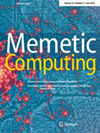Memetic Computing SCIE
国际简称:MEMET COMPUT 参考译名:模因计算
主要研究方向:COMPUTER SCIENCE, ARTIFICIAL INTELLIGENCE-OPERATIONS RESEARCH & MANAGEMENT SCIENCE 非预警期刊 审稿周期:
《模因计算》(Memetic Computing)是一本由Springer Berlin Heidelberg出版的以COMPUTER SCIENCE, ARTIFICIAL INTELLIGENCE-OPERATIONS RESEARCH & MANAGEMENT SCIENCE为研究特色的国际期刊,发表该领域相关的原创研究文章、评论文章和综述文章,及时报道该领域相关理论、实践和应用学科的最新发现,旨在促进该学科领域科学信息的快速交流。该期刊是一本未开放期刊,近三年没有被列入预警名单。该期刊享有很高的科学声誉,影响因子不断增加,发行量也同样高。
Memetic Computing期刊信息
- ISSN:1865-9284
- 出版语言:English
- 是否OA:未开放
- E-ISSN:1865-9292
- 出版地区:GERMANY
- 是否预警:否
- 出版商:Springer Berlin Heidelberg
- 出版周期:4 issues per year
- 创刊时间:2009
- 开源占比:0.0795
- Gold OA文章占比:8.64%
- OA被引用占比:0
- 出版国人文章占比:0.42
- 出版撤稿占比:0
- 研究类文章占比:100.00%
Memetic Computing CiteScore评价数据(2024年最新版)
| CiteScore | SJR | SNIP | CiteScore 指数 | ||||||||||||
| 6.8 | 0.945 | 1.1 |
|
名词解释:CiteScore 是衡量期刊所发表文献的平均受引用次数,是在 Scopus 中衡量期刊影响力的另一个指标。当年CiteScore 的计算依据是期刊最近4年(含计算年度)的被引次数除以该期刊近四年发表的文献数。例如,2022年的 CiteScore 计算方法为:2022年的 CiteScore =2019-2022年收到的对2019-2022年发表的文件的引用数量÷2019-2022年发布的文献数量 注:文献类型包括:文章、评论、会议论文、书籍章节和数据论文。
Memetic Computing中科院评价数据
中科院 2023年12月升级版
| Top期刊 | 综述期刊 | 大类学科 | 小类学科 | ||
| 否 | 否 | 计算机科学 | 2区 | COMPUTER SCIENCE, ARTIFICIAL INTELLIGENCE 计算机:人工智能 OPERATIONS RESEARCH & MANAGEMENT SCIENCE 运筹学与管理科学 | 2区 2区 |
中科院 2022年12月升级版
| Top期刊 | 综述期刊 | 大类学科 | 小类学科 | ||
| 否 | 否 | 计算机科学 | 3区 | COMPUTER SCIENCE, ARTIFICIAL INTELLIGENCE 计算机:人工智能 OPERATIONS RESEARCH & MANAGEMENT SCIENCE 运筹学与管理科学 | 3区 3区 |
中科院 2021年12月旧的升级版
| Top期刊 | 综述期刊 | 大类学科 | 小类学科 | ||
| 否 | 否 | 计算机科学 | 3区 | COMPUTER SCIENCE, ARTIFICIAL INTELLIGENCE 计算机:人工智能 OPERATIONS RESEARCH & MANAGEMENT SCIENCE 运筹学与管理科学 | 3区 3区 |
中科院 2021年12月基础版
| Top期刊 | 综述期刊 | 大类学科 | 小类学科 | ||
| 否 | 否 | 工程技术 | 2区 | COMPUTER SCIENCE, ARTIFICIAL INTELLIGENCE 计算机:人工智能 OPERATIONS RESEARCH & MANAGEMENT SCIENCE 运筹学与管理科学 | 3区 3区 |
中科院 2021年12月升级版
| Top期刊 | 综述期刊 | 大类学科 | 小类学科 | ||
| 否 | 否 | 计算机科学 | 3区 | COMPUTER SCIENCE, ARTIFICIAL INTELLIGENCE 计算机:人工智能 OPERATIONS RESEARCH & MANAGEMENT SCIENCE 运筹学与管理科学 | 3区 3区 |
中科院 2020年12月旧的升级版
| Top期刊 | 综述期刊 | 大类学科 | 小类学科 | ||
| 否 | 否 | 计算机科学 | 3区 | OPERATIONS RESEARCH & MANAGEMENT SCIENCE 运筹学与管理科学 COMPUTER SCIENCE, ARTIFICIAL INTELLIGENCE 计算机:人工智能 | 3区 4区 |
Memetic Computing JCR评价数据(2023-2024年最新版)
| 按JIF指标学科分区 | 收录子集 | 分区 | 排名 | 百分位 |
| 学科:COMPUTER SCIENCE, ARTIFICIAL INTELLIGENCE | SCIE | Q2 | 82 / 197 |
58.6% |
| 学科:OPERATIONS RESEARCH & MANAGEMENT SCIENCE | SCIE | Q2 | 32 / 106 |
70.3% |
| 按JCI指标学科分区 | 收录子集 | 分区 | 排名 | 百分位 |
| 学科:COMPUTER SCIENCE, ARTIFICIAL INTELLIGENCE | SCIE | Q2 | 86 / 198 |
56.82% |
| 学科:OPERATIONS RESEARCH & MANAGEMENT SCIENCE | SCIE | Q2 | 38 / 106 |
64.62% |
Memetic Computing历年数据统计
影响因子
中科院分区
Memetic Computing中国学者发文选摘
-
1、An intelligent scheduling algorithm for complex manufacturing system simulation with frequent synchronizations in a cloud environment
Author: Feng Yao, Yiping Yao, Lining Xing, Huangke Chen, Zhongwei Lin, Tianlin Li
Journal: Memetic Computing, 2019, Vol., , DOI:10.1007/s12293-019-00284-3
-
2、Mathematical modeling and a discrete artificial bee colony algorithm for the welding shop scheduling problem
Author: Xinyu Li, Shengqiang Xiao, Cuiyu Wang, Jin Yi
Journal: Memetic Computing, 2019, Vol., , DOI:10.1007/s12293-019-00283-4
-
3、Project portfolio selection and scheduling under a fuzzy environment
Author: Xiaoxiong Zhang, Keith W. Hipel, Yuejin Tan
Journal: Memetic Computing, 2019, Vol., , DOI:10.1007/s12293-019-00282-5
-
4、A multi-level knee point based multi-objective evolutionary algorithm for AUC maximization
Author: Jianfeng Qiu, Minghui Liu, Lei Zhang, Wei Li, Fan Cheng
Journal: Memetic Computing, 2019, Vol., , DOI:10.1007/s12293-019-00280-7
-
5、DSM-DE: a differential evolution with dynamic speciation-based mutation for single-objective optimization
Author: Libao Deng, Lili Zhang, Haili Sun, Liyan Qiao
Journal: Memetic Computing, 2019, Vol., , DOI:10.1007/s12293-019-00279-0
-
6、Novel paralleled extreme learning machine networks for fault diagnosis of wind turbine drivetrain
Author: Xian-Bo Wang, Zhi-Xin Yang, Pak Kin Wong, Chao Deng
Journal: Memetic Computing, 2018, Vol., , DOI:10.1007/s12293-018-0277-2
-
7、An improved differential evolution algorithm for solving a distributed assembly flexible job shop scheduling problem
Author: Xiuli Wu, Xiajing Liu, Ning Zhao
Journal: Memetic Computing, 2018, Vol., , DOI:10.1007/s12293-018-00278-7
-
8、Improving artificial bee colony with one-position inheritance mechanism
Author: Xin Zhang, Shiu Yin Yuen
Journal: Memetic Computing, 2013, Vol.5, 187-211, DOI:10.1007/s12293-013-0117-3
Memetic Computing同类期刊
-
人工智能的工程应用
Engineering Applications Of Artificial Intelligence
中科院 2区 JCR Q1
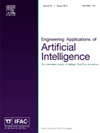
-
大数据杂志
Journal Of Big Data
中科院 2区 JCR Q1
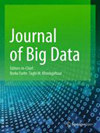
-
智能与模糊系统杂志
Journal Of Intelligent & Fuzzy Systems
中科院 4区 JCR Q3
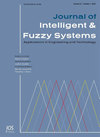
-
物联网
Internet Of Things
中科院 3区 JCR Q1
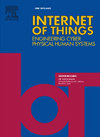
-
信息技术与控制
Information Technology And Control
中科院 4区 JCR Q3
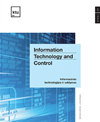
-
网络安全
Cybersecurity
中科院 4区 JCR Q1
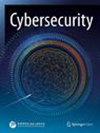
-
数字通信和网络
Digital Communications And Networks
中科院 2区 JCR Q1
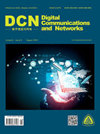
-
信息科学与工程杂志
Journal Of Information Science And Engineering
中科院 4区 JCR Q4
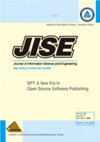
免责声明
本站合法持有《出版物经营许可证》,仅销售经国家新闻出版署批准的合法期刊,不是任何杂志官网,不涉及出版事务。本站仅提供有限咨询服务,需要用户自己向出版商投稿且没有绿色通道,是否录用一切以出版商通知为准。提及的第三方名称或商标,其知识产权均属于相应的出版商或期刊,本站与上述机构无从属关系,所有引用均出于解释服务内容的考量,符合商标法规范。本页信息均由法务团队进行把关,若期刊信息有任何问题,请联系在线客服,我们会认真核实处理。 若用户需要出版服务,请联系出版商:TIERGARTENSTRASSE 17, HEIDELBERG, GERMANY, D-69121。
工信部备案:蜀ICP备18023296号-3 川公网安备:51010802001409 出版物经营许可证:新出发蓉零字第CH-B061号 统一信用码:91510108MA6CHFDC3Q © 版权所有:四川好花科技有限公司
免责声明:本站持有《出版物经营许可证》,主要从事期刊杂志零售,不是任何杂志官网,不涉及出版事务,特此申明。
